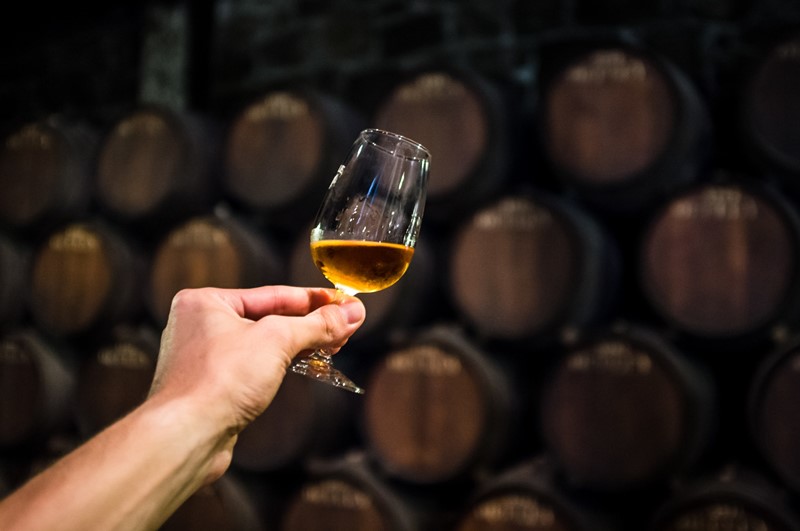China Delays Brandy Tariffs, Europe Sighs in Relief
China and EU Trade Tensions Eased, Temporarily
2024-09-03

China's recent decision to delay imposing provisional tariffs on European brandy producers, including French cognac makers, marks a significant moment in the escalating trade tensions between China and the European Union (EU). This decision, announced amidst ongoing trade disputes, reflects a complex interplay of economic strategies and international relations, with potential repercussions for both the European and Chinese markets.
The seeds of this controversy were sown in January when Beijing initiated an anti-dumping investigation into the importation of European brandy, shortly after the EU began scrutinizing Chinese subsidies for electric vehicles. The Chinese government's move to investigate followed a complaint lodged in November by the China Alcoholic Drinks Association, which argued that European brandy, particularly cognac, was being sold in China at prices lower than in their home markets. The association claimed this practice threatened the domestic brandy industry in China with "substantial harm."
Despite preliminary findings that support these allegations, the Chinese Ministry of Commerce has opted not to impose immediate anti-dumping duties on European brandy. This decision has provided temporary relief to European exporters, especially French producers, who dominate the Chinese market. However, the Chinese government has made it clear that it reserves the right to impose such duties in the future, depending on the final results of the ongoing investigation.
The announcement has had a notable impact on the financial markets, particularly on the shares of major French liquor companies like Rémy Cointreau and Pernod Ricard. These companies experienced a boost in their stock prices following the news, reflecting investor relief at the avoidance of immediate tariffs. This reaction underscores the importance of the Chinese market to these companies; for instance, China accounts for a significant portion of global cognac sales, with French imports leading the charge.
According to Daxue Consulting, in 2022, China imported more brandy than any other type of liquor, with the majority coming from France. The strong demand for cognac in China, which represents 25% of all French cognac exports, highlights the stakes involved. Any imposition of tariffs could disrupt this lucrative market, causing significant financial strain on French producers and altering global trade flows.
The brandy dispute is just one aspect of the broader and increasingly fraught trade relationship between China and the EU. Tensions have been escalating, particularly following the EU's investigation into Chinese subsidies for electric vehicles, which could lead to tariffs of up to 36% on Chinese imports. In a tit-for-tat move, China has launched its own investigation into European subsidies for dairy products, including fresh cheese and cream, further deepening the trade rift.
These developments suggest a growing trade war that could have far-reaching consequences for various industries. For the European alcohol industry, the risk of tariffs on brandy and other spirits poses a direct threat to profitability and market access in China. Conversely, Chinese industries dependent on European imports could face higher costs and supply chain disruptions.
The Bureau National Interprofessionnel du Cognac (BNIC), representing French cognac producers, has warned that the situation remains precarious. The organization has pointed out that the final determination of the investigation could still lead to tariffs, potentially averaging 34.8%. Such a development would severely impact the export dynamics, possibly leading to a decline in sales and a loss of market share in one of the world's most lucrative markets for cognac.
In response to these risks, the BNIC and affected companies like Rémy Cointreau and Pernod Ricard are urging the French government and the EU to engage in diplomatic negotiations with China. The goal is to prevent the imposition of tariffs that could destabilize the current trade balance and harm the longstanding trade relationship between Europe and China.
Despite the pressure, French companies remain confident in their compliance with both Chinese and international trade regulations. They have consistently denied engaging in dumping practices and have expressed hope that the final resolution will be favorable. However, with the investigation still ongoing, uncertainty looms large over the future of European brandy exports to China.
China's decision to hold off on imposing provisional tariffs on European brandy producers is a temporary reprieve in an increasingly complex trade dispute. While the immediate impact on French liquor companies has been positive, the long-term outlook remains uncertain. As the investigation continues and broader trade tensions between China and the EU intensify, the situation calls for careful diplomacy and strategic foresight from all parties involved. The outcome of this dispute will not only affect the brandy industry but also set a precedent for how future trade conflicts between these two economic powerhouses might unfold.
Founded in 2007, Vinetur® is a registered trademark of VGSC S.L. with a long history in the wine industry.
VGSC, S.L. with VAT number B70255591 is a spanish company legally registered in the Commercial Register of the city of Santiago de Compostela, with registration number: Bulletin 181, Reference 356049 in Volume 13, Page 107, Section 6, Sheet 45028, Entry 2.
Email: [email protected]
Headquarters and offices located in Vilagarcia de Arousa, Spain.